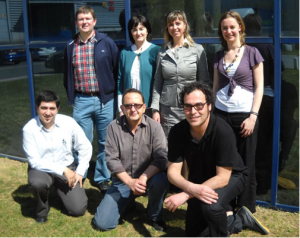 Courant avril les partenaires du projet européen PLACOTOP se sont réunis chez TECNALIA afin de faire le point sur les avancées du projet 6 mois après le début de celui-ci.
Courant avril les partenaires du projet européen PLACOTOP se sont réunis chez TECNALIA afin de faire le point sur les avancées du projet 6 mois après le début de celui-ci.
Le projet PLACOTOP poursuit l’objectif de la mise au point d’un bouchon pour vin avec une technologie innovante alliant le liège à des matériaux synthétiques très avancés.
RESCOLL a exposé les travaux réalisés sur le contact alimentaire des bouchons et les effets organoleptiques de ceux-ci. De même, Claire Michaud, ingénieur environnement chez RESCOLL a fait état de ses travaux sur l’Analyse du Cycle de Vie comparative qu’elle est en train de mener sur les différentes générations et types de bouchons (naturels, agglomérés, synthétiques, composites,…) afin de quantifier l’impact environnemental des solutions mises au point.

L'éco-conception des matériaux